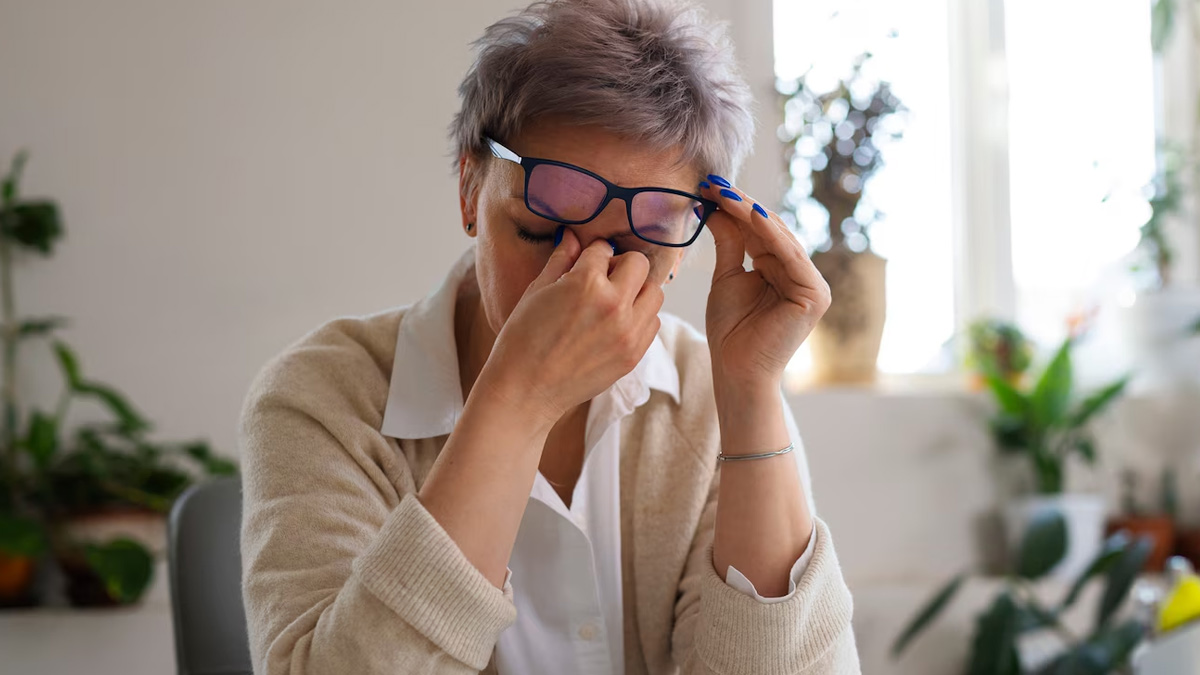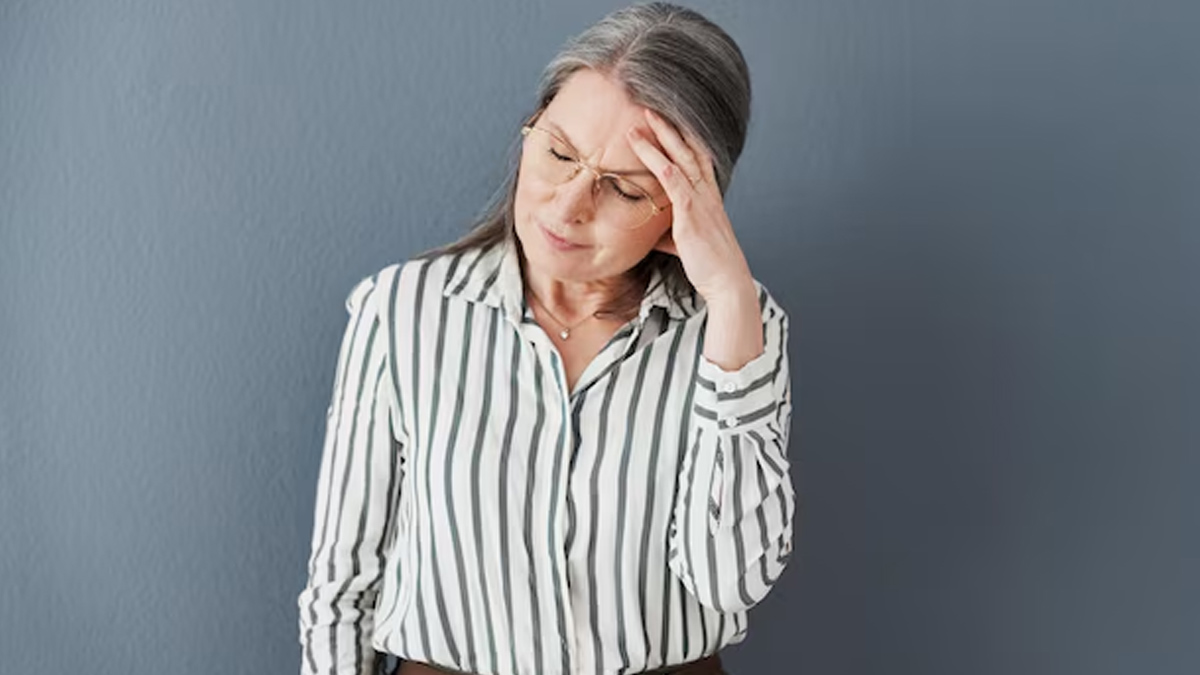
Menopause marks the end of the menstrual cycle. It usually occurs between the ages of 45-55 and is diagnosed after twelve consecutive months without menstruation. During menopause, most women experience a series of symptoms ranging from hot flashes and mood swings to vaginal dryness and sleep changes. However, other health issues may also arise during this period. Some women also complain of having severe headaches, which in some cases are associated with migraines, a neurological disorder characterised by recurrent episodes of headaches accompanied by nausea and sensitivity to light and sound.
Table of Content:-
The OnlyMyHealth team spoke to Dr Archana Dhawan Bajaj, Gynaecologist, Obstetrics, and IVF Expert, Nurture IVF Clinic, New Delhi, to understand why migraine attacks become worse in menopausal women and what kind of treatment and lifestyle changes can be adopted to reduce the symptoms.
Also Read: How To Identify An Allergy Headache: How Is It Different From Other Common Types Of Headaches
How To Identify Migraine Headaches

While migraine is a health condition that is commonly associated with headaches, it is more than just that. According to StatPearls Publishing, migraine affects approximately 12% of the population, with annual rates reaching up to 17% among women and 6% among men.
Migraine headaches may often resemble normal headaches; however, there are certain characteristics that can help you confirm the condition. These include:
- Intense throbbing head pain, usually on one side
- Headache accompanied by nausea, vomiting, and sensitivity to light and sound
- Visual disturbances, known as aura, before or during a migraine attack
- Migraine attacks can last from 4 to 72 hours.
Do Migraines Worsen During Menopause?

“Migraines and menopause are closely related,” said Dr Bajaj, adding that in the years leading up to menopause, also known as perimenopause, migraine symptoms are usually more common and long-lasting.
She explained that migraine episodes increase in the early stages of menopause, as periods become more unpredictable and frequent. As menopause progresses and menstruation becomes less frequent, migraines decrease.
According to Dr Bajaj, hormonal changes trigger migraines by bringing about fluctuations in levels of the hormone oestrogen. Oestrogen levels diminish just before the commencement of your monthly flow (menses).
The doctor added that premenstrual migraines usually occur during or after the period when oestrogen and progesterone levels are lowest. Hormonal changes can significantly affect headaches. At least 60% of people who have a period and suffer from migraines report getting them during their menstrual cycle.
Treatment Options
For migraines caused by hormonal changes, there are tried-and-true medications available. These treatments include:
- Ice therapy: Hold a cool cloth or an ice pack against the aching area of your head or neck. To protect your skin, wrap the ice pack in a towel.
- Relaxation exercises: Learning these activities can assist in reducing stress. Stress can cause headaches.
- Acupuncture: Acupuncture may relieve headaches and help you relax.
- Non-prescription pain medicines can provide relief quickly once a headache develops. Your doctor may recommend that you take a nonsteroidal anti-inflammatory medicine (NSAID).
- Triptans usually reduce headache discomfort within two hours by inhibiting pain impulses in the brain.
Also Read: How To Use Menthol For Reliving Headache And Migraine
Role Of Lifestyle Changes

Lifestyle changes can also help reduce migraines during menopause. These include:
- A healthy diet coupled with regular exercise
- Adequate sleep
- Stress management
- Identifying and avoiding migraine triggers, such as specific meals and beverages
“Women suffering from nocturnal sweating and hot flushes are more likely to have migraines as compared to those who do not,” said Dr Bajaj. She suggested that while Hormone Replacement Therapy (HRT) can help control menopausal symptoms, it is not a cure for migraines. Starting HRT too soon during perimenopause can exacerbate migraines due to changing oestrogen levels.”
Conclusion
For many women, menopause brings more than just hot flashes and mood swings; it can also make migraines harder to bear. As hormone levels shift, these headaches may become more frequent or intense. The good news is you don’t have to suffer in silence. With the right mix of treatment, healthy habits, and support, migraine can be managed. If migraines interfere with your daily life, reaching out to a doctor is a good first step toward finding relief.
Also watch this video
How we keep this article up to date:
We work with experts and keep a close eye on the latest in health and wellness. Whenever there is a new research or helpful information, we update our articles with accurate and useful advice.
Current Version